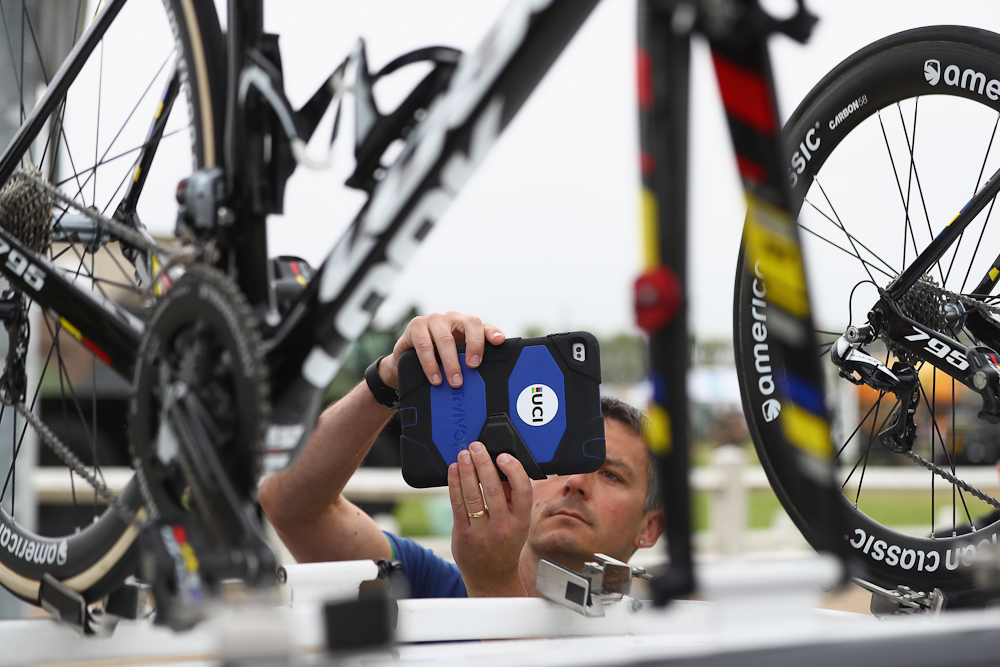The UCI has appointed a former criminal investigator as its Head of the Fight Against Technological Fraud, to further the governing body’s mission against “fraudulent use of a motor or any other activities that infringe the UCI Regulations.”
Nicholas Raudenski, formerly of the International Testing Agency (ITA) – the body in charge of the UCI’s anti-doping operations – will from May 1 lead the global strategy and continue the work already done by the UCI to ensure the integrity of the sport.
Technological fraud, or motor doping, has become a serious point of concern for the UCI in the last 15 years and was headed up by former UCI Head of Innovation and Esport, Michael Rogers, until he left his role earlier this month.
Raudenski is a highly experienced criminal investigator who has spent 23 years working in ‘the highest echelons of global sports’, as the press release puts it, against corruption, match-fixing, and other ethical issues.
“Pursuing an effective fight against technological fraud is a key element of the UCI’s Agenda 2030 and we are delighted to have Nick Raudenski on board to rule out any possibility of athletes getting away with cheating,” said UCI President David Lappartient in a press release.
“His unrivalled experience in the areas of deterrence and detection, intelligence and investigations, and sports integrity will be a huge bonus to the UCI’s work to ensure the highest ethical standards and that everyone understands that there is no room in cycling for the fraudulent use of a motor or any other activities that infringe the UCI Regulations.”
Technological Fraud is defined by the UCI as “the fraudulent or unauthorised use of a motor or any other technique that infringes article 1.3.010 of the UCI Regulations”. The article in question states that “The bicycle shall be propelled solely, through a chain set, by the legs (inferior muscular chain) moving in a circular movement, without electric or other assistance.”
The UCI stated that Raudenski will oversee potential new methods to detect technological fraud, adding to those currently seen at races which include magnetic tablets, mobile X-ray cabinets and portable devices using backscatter and transmission technologies.
Raudenski’s previous work has seen him become a global authority on Intelligence & Investigations in sport, having worked for the Fédération Internationale de Football Association (FIFA) and Union des Associations Européennes de Football (UEFA) before moving to anti-doping.
“I am pleased to join the UCI and contribute to its mission and efforts in fighting against technological fraud in cycling,” Raudenski said.
“As a leading International Federation dedicated to upholding integrity in all aspects of its operations, the UCI is ‘walking the walk’ by intensifying its focus on this crucial issue.
“I’m looking forward to leveraging my expertise and experience to support one of the UCI’s main missions: to guarantee the integrity of cycling. Moreover, enforcing the rules while safeguarding the well-being of athletes and preserving the integrity of global competition remains paramount to ensuring fairness and credibility in cycling.”


